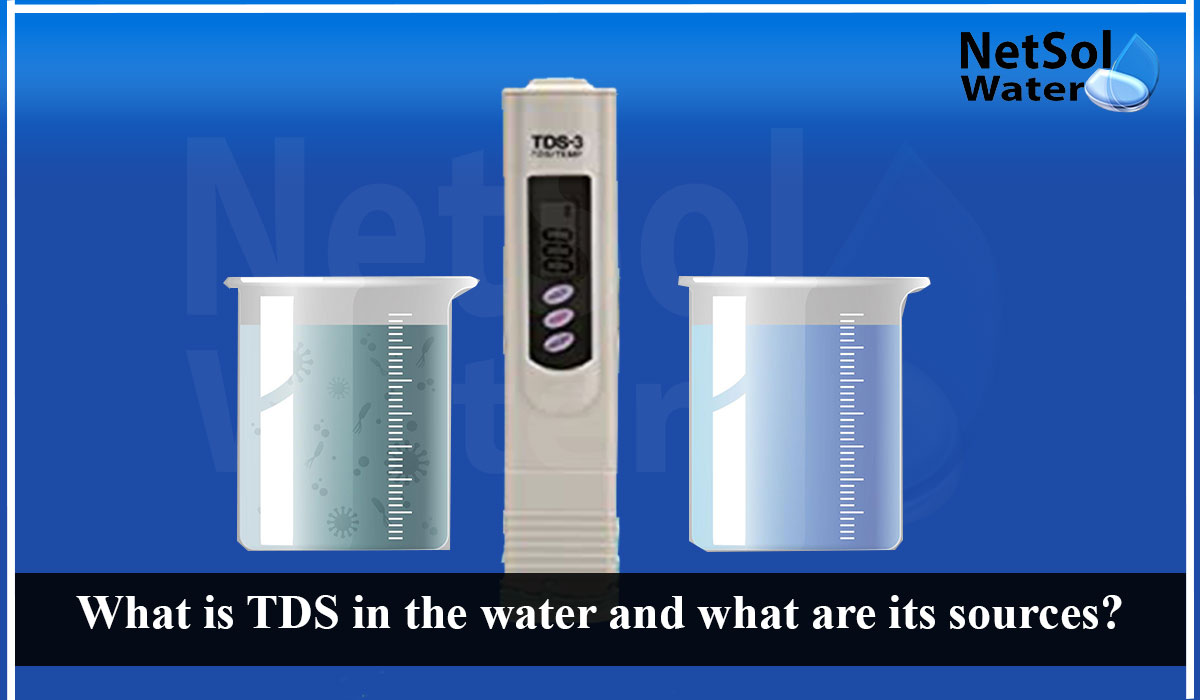What is TDS in the water and what are its sources?
TDS (Total Dissolved Solids) is a critical water quality parameter that determines the amount of dissolved solids in water. These solids can be either organic or inorganic and can have a significant impact on the taste, odor, and color of water.
Now we will discuss what TDS is in water, its sources, and its effects on water quality.
What are TDS?
TDS is the total concentration of dissolved solids in water. These solids can include minerals, salts, and organic compounds that are present in water due to natural processes or human activities. TDS is measured in milligrams per liter (mg/L) or parts per million (ppm).
Sources of TDS in Water
TDS can originate from various sources, including natural processes and human activities. Some of the sources of TDS in water are as follows:
· Natural Sources:
TDS can occur naturally in water due to the dissolution of rocks and minerals in the earth's crust. The concentration of TDS can vary depending on the geological formation of the region. Groundwater is also a natural source of TDS, as it dissolves minerals and salts as it percolates through rocks and soils.
· Agricultural Activities: Agricultural practices, such as irrigation and the use of fertilizers, can lead to an increase in TDS levels in water. Fertilizers and pesticides can dissolve in water and increase the TDS concentration.
· Industrial Activities: Industrial activities, such as mining, manufacturing, and wastewater treatment, can lead to an increase in TDS levels in water. Industrial processes can discharge pollutants and chemicals that can dissolve in water and increase the TDS concentration.
· Domestic Activities: Domestic activities, such as washing dishes, clothes, and bathing, can lead to an increase in TDS levels in water. The use of detergents and soaps can dissolve in water and increase the TDS concentration.
Effects of TDS on Water Quality
High levels of TDS in water can have various effects on water quality, including the following:
· Taste and Odor: High TDS levels can affect the taste and odor of water, making it unpleasant to drink. The dissolved minerals and salts can impart a bitter or salty taste to water.
· Water Hardness: High TDS levels can cause water hardness, which can lead to scaling in pipes and fixtures. This scaling can reduce water flow and damage the water distribution system.
· Health Effects: High TDS levels can cause health effects, such as diarrhea, nausea, and vomiting. TDS can also contain harmful contaminants, such as heavy metals and organic compounds, which can pose a risk to human health.
Permissible Limits of TDS in Drinking Water
The permissible limits of TDS in drinking water depend on the country or region. In the United States, the Environmental Protection Agency (EPA) has set a secondary standard for TDS of 500 mg/L. This standard is not enforceable but is recommended to maintain the aesthetic quality of water.
The World Health Organization (WHO) has set a maximum permissible limit of TDS in drinking water of 1000 mg/L. The WHO also recommends a conductivity limit of 2000 µS/cm for drinking water.
As for Indian Standard, the required acceptable limit of drinking water is maximum of 500 mg/l and Permissible limit in absence of alternate source is 2000mg/l.
Summary:
TDS is a critical water quality parameter that determines the amount of dissolved solids in water. It can originate from various sources, including natural processes and human activities. High TDS levels can affect the taste, odor, and color of water and can also have health effects. It is essential to regularly monitor TDS levels in water to ensure that the water we consume is safe and free from harmful contaminants.
Leading manufacturer of sewage treatment plants in India
Netsol Water is the leading manufacturer, supplier, and exporter of a quality selection of water treatment, and wastewater treatment products in India, by using advanced sewage treatment methods.
Industrial RO plants, water softeners, ETPs, STPs, DM plants, AMC, O&M, Ultra filtration, UV, Ozonation, ZLD plants, Anoxic tanks, and other goods and services are available from us. We also provide services to businesses in sectors including automotive, pharmaceutical, textile, pulp & paper, beverages, refineries, schools, hospitals, office buildings, and hotels, among others. Call us at +91 9650608473 or email at enquiry@netsolwater.com for further information.



